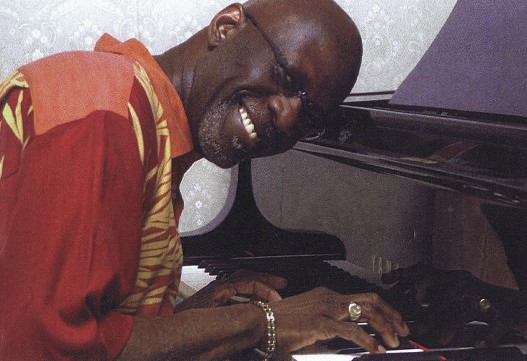Last May the world lost Orville Wright to cancer. He was a father, a husband, a student, a professor, a musician, a composer, a traveler, a writer and a mentor. Professor Wright served as chair of music, theater, and dance for UMass Boston’s Department of Performing Arts since 2007, and first came to campus in 2004.
“In seven years he had a tremendous and extraordinary impact in the Department of Performing Arts, on the music program and really on the culture of the university,” said Robert Lublin, who took over the chair after Professor Wright. Lublin first met Wright when he arrived on campus in 2004.
Professor David Pruett spoke of Professor Wright as a “very powerful personality, very commanding, very kind, very gentle, also fun-loving.” Said Pruett, “Our faculty meetings were a fun atmosphere.”
Student Chris Bilodeau knew Professor Wright well enough to speak of him at the memorial UMass Boston held in November.
“He was very demanding, and students would be kind of intimidated to go talk with him,” said Bilodeau, who felt an instant connection with Professor Wright over their love and passion for jazz. “He gave hours and hours of time during class, outside of class talking about jazz theory, jazz harmony, anything.”
“He got all the students brand new Yamaha pianos in the practice rooms and made sure they were always tuned and kept up,” said Bilodeau, who would often be chosen by Professor Wright to perform gigs at special events held at UMass Boston. “He was generous that way. He could have done the gigs himself but he gave it to the students,” he added.
Professor Wright did not always hand off gigs to students. He composed the music for the Chancellor Motley’s induction in 2007.
Wright began his musical training as a child in Trinidad and Tobago, where he was born, before coming to Boston in 1970 to study arranging and composition at the Berklee College of Music. Upon graduation he joined their faculty, and, in 1985, became the chair of Berklee’s Ensemble Department. At the same time, Wright attended or performed at music seminars, clinics and jazz festivals in Japan, Italy, South Africa, Poland and Puerto Rico.
Wright’s death came as a shock to students and faculty. After being diagnosed with pancreatic cancer in February of this year and leaving his position to undergo treatment, he passed away in May.
“He looked extremely healthy, very strong. He worked out regularly, and it was quite surprising,” said Professor Lublin.
Wright leaves behind three children and his wife, a UMass Boston alumna. He also leaves a faculty and student body that will no longer be able to tap a well of experience from a man who would, as Pruett said, “go above and beyond what he had to do for students and faculty.”





















































